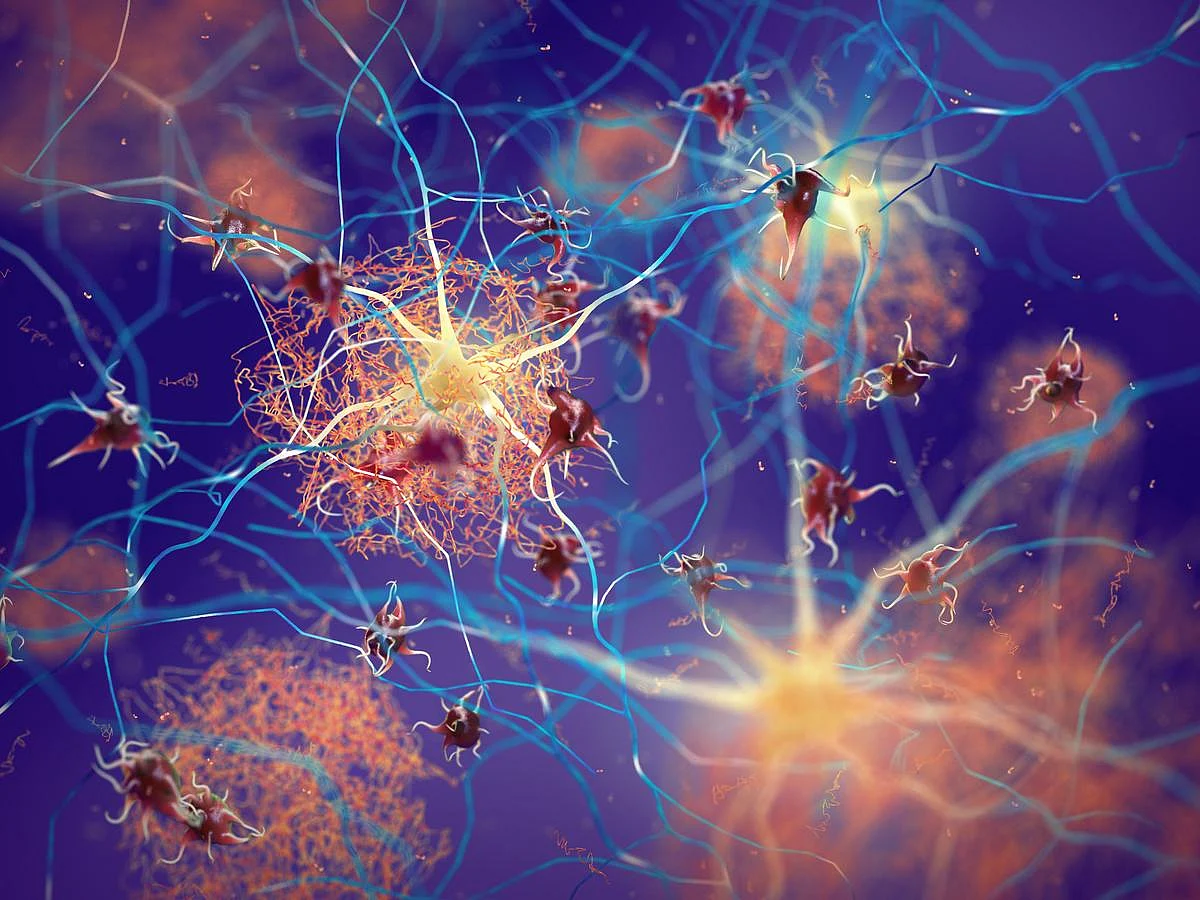Scientists Discover the Brain's Waste-Disposal System, With Clues to Alzheimer's Disease
TUESDAY, Oct. 8, 2024 -- The brain has a waste-disposal system that clears away junk proteins that contribute to the development of dementia and Alzheimer’s disease, a new study finds.
Advanced imaging scans have revealed a network of fluid-filled structures along arteries and veins within the brain, researchers reported Oct. 7 in the Proceedings of the National Academy of Sciences.
These structures allow cerebrospinal fluid to flow through the brain, potentially flushing out waste proteins like amyloid and tau, researchers said.
Those toxic proteins build up in the brains of Alzheimer’s patients, creating plaques and tangles that are hallmarks of the disorder.
Previous research found these sort of fluid channels in the brains of mice, but this is the first time they’ve been confirmed to exist in humans as well, researchers said.
“Nobody has shown it before now,” said senior researcher Dr. Juan Piantino, an associate professor of pediatric neurology in the Oregon Health & Science University (OHSU) School of Medicine.
“This shows that cerebrospinal fluid doesn’t just get into the brain randomly, as if you put a sponge in a bucket of water,” Piantino added in a university news release. “It goes through these channels.”
For the study, researchers injected five patients undergoing brain surgery at OHSU with a tracer that would be carried with cerebrospinal fluid into the brain.
The research team then used MRI scans to track the spread of the tracer throughout the brain.
Images showed that the fluid moved along clearly defined channels in the brain, which researchers called “perivascular spaces.”
“You can actually see dark perivascular spaces in the brain turn bright,” said co-lead researcher Dr. Erin Yamamoto, a resident in neurological surgery in the OHSU School of Medicine.
Researchers believe the pathways help flush out waste that’s been generated by the brain, similar to the way that the lymphatic system flushes waste generated by the immune system throughout the body.
“People thought these perivascular spaces were important, but it had never been proven,” Piantino said. “Now it has.”
Future research can focus on ways to improve this waste-disposal system in the brain, researchers noted.
For example, quality sleep is believed to help the system better flush waste proteins out of the brain, they said.
Sources
- Oregon Health & Science University, news release, Oct. 7, 2024
Disclaimer: Statistical data in medical articles provide general trends and do not pertain to individuals. Individual factors can vary greatly. Always seek personalized medical advice for individual healthcare decisions.
© 2025 HealthDay. All rights reserved.
Read this next
Household Items Tied to Sharp Increase in Self-Harm Cases in Teens
WEDNESDAY, Sept. 10, 2025 — Cases of self-harm involving 6- to 12-year-olds have risen sharply, and researchers warn that common household products are often...
Ultrasound Helmet Provides Surgery-Free Brain Stimulation
WEDNESDAY, Sept. 10, 2025 — Deep brain stimulation has shown promise in treating conditions ranging from epilepsy and Parkinson’s disease to cluster headaches...
Wireless Ultrasound: A Potential Revolution In Assessing On-Field Sports Injuries?
WEDNESDAY, Sept. 10, 2025 — The collegiate sports season is upon us, and with it the inevitable bruises, sprains and strains that come from tough competition. Portable...
More news resources
- FDA Medwatch Drug Alerts
- Daily MedNews
- News for Health Professionals
- New Drug Approvals
- New Drug Applications
- Drug Shortages
- Clinical Trial Results
- Generic Drug Approvals
Subscribe to our newsletter
Whatever your topic of interest, subscribe to our newsletters to get the best of Drugs.com in your inbox.


